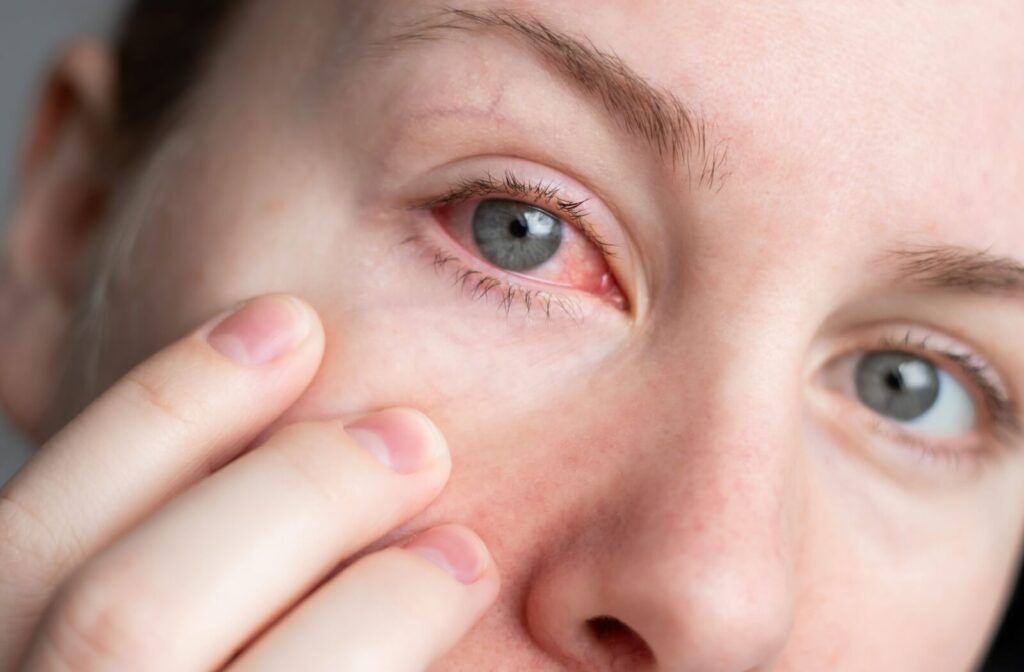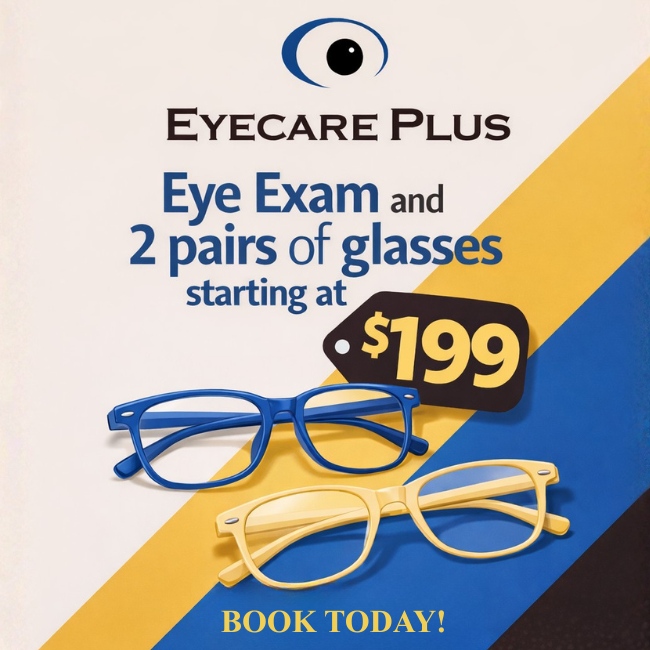It’s a fairly common problem to have vision that seems a bit fuzzy from time to time, especially after looking at a screen for a while. You might blink a few times, and things become clear again. This temporary blurriness can often be linked to the health of your eye’s surface.
If you’ve wondered whether dryness is the cause, you’re on the right track. Yes, dry eyes can cause your vision to become blurry. Your eyes rely on a consistent layer of tears, known as the tear film, to focus light and see clearly.
The Simple Answer & How It Happens
Your tear film creates a perfectly smooth surface on your eye that is necessary for clear sight. When your eyes are dry, their surface becomes uneven and patchy. This irregularity disrupts how light enters your eye, which can make your vision seem blurry or distorted.
Blinking can temporarily smooth the tear film over your eye’s surface, which is why your vision might clear up for a moment.
How to Know If Dry Eyes Affect Your Vision
What Does Blurry Vision From Dry Eye Look Like?
When dry eye is the source of blurry vision, you may experience symptoms such as:
- Your vision seems to go in and out of focus
- Blurriness that improves when you blink
- Trouble with focus while using a computer or phone
- Increased sensitivity to light
- A feeling of eye strain or fatigue
Other Common Dry Eye Symptoms
Blurry vision is often accompanied by other feelings of discomfort. These additional symptoms are strong indicators that dryness could be the issue. They can include:
- A gritty or scratchy feeling, like sand is in your eye
- Stinging or burning sensations
- Redness
- Watery eyes—this is your body’s paradoxical response to the irritation, which dry eye treatments can address
Why Your Tear Film Matters for Clear Sight
The Job of Healthy Tears
Every time you blink, you spread a fresh layer of tears over your cornea—the clear front part of your eye. This tear film does more than just keep your eye moist. It also washes away small particles, protects against infection, and nourishes your eyes.
What Goes Wrong With Your Tears
Dry eye typically happens for one of three reasons. Your eyes may not produce enough tears to keep the surface lubricated. Your tears might evaporate too quickly due to environmental factors or issues with oil glands in your eyelids. Lastly, your tears may lack the right balance of water, oil, and mucus needed to properly coat your eye.

Common Causes & Risk Factors for Dry Eyes
Health, Age, & Medications
As you get older, your body naturally produces fewer tears, which can lead to dryness. Certain health conditions like diabetes (which require diabetic eye care) can also lead to dry eyes. Even common medications can reduce tear production as a side effect, including:
- Antihistamines and decongestants
- Blood pressure medications
- Antidepressants
Your Environment & Daily Habits
Your surroundings and daily routines can play a big part in dry eye. Spending a lot of time in front of digital screens often leads to less frequent blinking, which prevents your tears from spreading evenly. Other contributing factors include:
- Dry, windy, or smoky environments
- Air conditioning and indoor heating
- Wearing contact lenses for long periods
- Not drinking enough water
How to Get Relief for Dry Eyes & Blurry Vision
Simple Changes for More Comfortable Eyes
For mild dry eye, a few adjustments to your daily habits can make a noticeable difference. These simple steps can help improve your eye comfort and may lead to clearer vision.
- Use Artificial Tears: Over-the-counter eye drops can provide quick, temporary relief by supplementing your natural tears.
- Take Screen Breaks: Follow the 20-20-20 rule—every 20 minutes, look at something 20 feet away for at least 20 seconds.
- Add Moisture to the Air: Use a humidifier in your home or office to help slow down how quickly your tears evaporate.
- Stay Hydrated: Drink plenty of water throughout the day to support your body’s overall hydration, which includes your eyes.
In-Office Treatments for Dry Eye
For patients with persistent or more advanced dry eye, professional treatments can provide longer-lasting relief beyond at-home care. Our options include:
- Energy-Based Therapies
- OptiLIFT™ Eyelid Rejuvenation
Optima IPL (Intense Pulsed Light) - ThermiEyes RF (Radiofrequency)
- OptiLIFT™ Eyelid Rejuvenation
- In-Office Procedures
- LipiFlow® Thermal Pulsation
- Blepharo Exfoliation
- Punctal Plugs
These treatments target the underlying causes of dry eye to restore tear function, improve comfort, and protect long-term vision. If you want to learn more about how they work and what they involve, have a look at our dry eye page.
When to See an Eye Doctor in Greater Nashville
If at-home care doesn’t provide enough relief, or if your symptoms interfere with your daily life, it may be time to get a professional opinion. Persistent blurriness or discomfort that doesn’t go away could indicate a more significant issue that needs attention.
At Eyecare Plus, our team can perform a thorough exam to determine the cause of your dry eye symptoms. With 6 convenient locations across Greater Nashville—Antioch, Clarksville, Columbia, Green Hills, Hendersonville, and Murfreesboro—our eye doctors can explain your options and create a personalized plan to restore your eye comfort and vision. Schedule an appointment today to get started.






